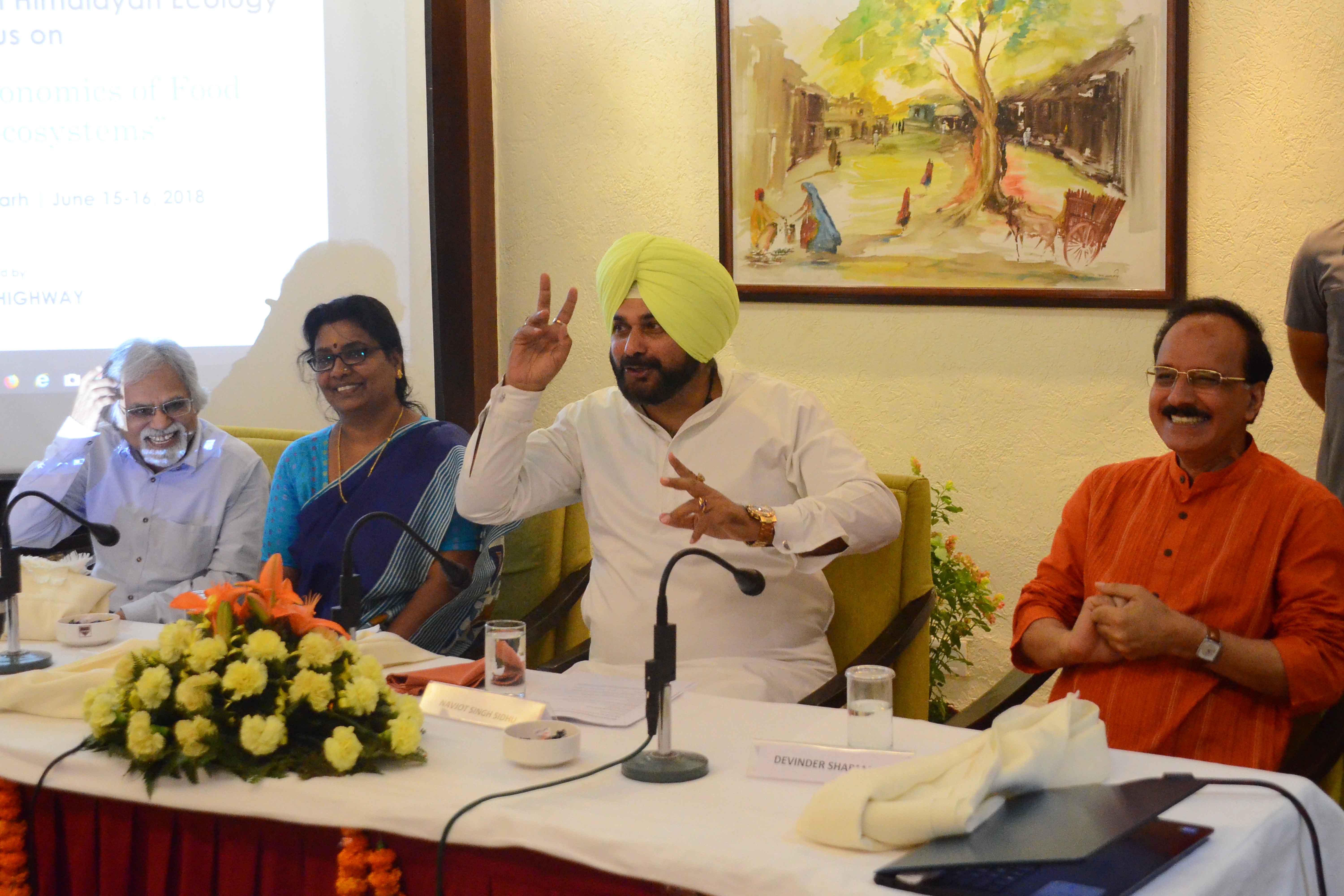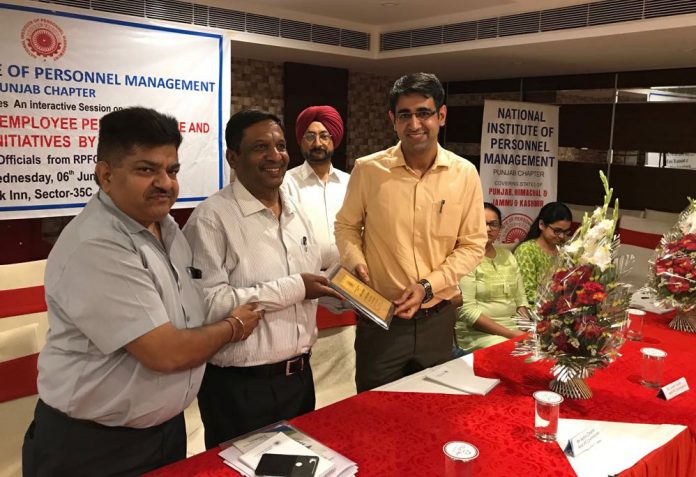Navjot Singh Sidhu, Punjab Cabinet Minister today said initiatives like that taken by the Chandigarh-based trust, Dialogue Highway can stir a revolutionary movement which can go a long way for the ecological development.

He was speaking at inaugural session of two-day conference of the 3rd National Dialogue on Himalayan Ecology kick-started at Hotel Park View, Sector 24, here. The theme of the conference is “Measuring the Economics of Food & Agriculture Ecosystems” and over 30 experts from across the country are participating.
“I am impressed with the noble intents of Dialogue Highway for their remarkable initiatives, and I strongly believe that deliberations like these will stir a revolutionary movement for ecological development,” said Sidhu.
He further added, “The only thing that we all have in common is air, and the greatest service that we can do for the mankind is to plant trees. So, we all must contribute our bit to the overall growth & development of ecology.”
Among other prominent present at the inaugural session were Dr. Dinesh Marothia, Centre for Integrated Natural Resources Management, Raipur, Former Chairman Commission for Agricultural Costs and Prices, Astinder Kaur, Convener, Dialogue Highway, Chandigarh, Dr. P Indira Devi, Director of Research, Kerala Agricultural University, Thrissur, and Dr. J K Suri.
Speaking about the dire need of redesigning the food system, Devinder Sharma, Managing Trustee of Dialogue Highway said, “Today, our environment is in complete disarray. 75% of the insects are dying in their natural reservoir and the ecology is suffering from a broken food system. But, we all must not forget that every disaster comes as a business opportunity. Our policy-makers must provide an economic value to the important aspects which are being ignored and surpass the conventional mechanism of ecology.”
“It is time for the food bowl of the country, Punjab to pave the way for ecological development and fix the broken food system,” he concluded.
The first session of the seminar delineated on evaluating ecosystem. “We’ve to follow a natural capital approach and deal with various kinds of incomes which are utilized by millions of households in the economy; for these ecosystems play a significant role in ecological development,” stated Prof. L Venkatachalam, Madras Institute of Development Studies, Chennai.
Syncing with the same, Prof. RS Ghuman, Professor of Economics, Centre for Research in Rural and Industrial Development (CRRID), Chandigarh said, “The destruction of an ecosystem is a serious issue and it is high time that we all join hands to curb the menace.” Dr. Lalit Kumar, Associate Professor, Business Economics at Ambedkar College, Delhi University further elaborated on the functioning of Payment for Ecosystem Services, and Anil Joshi, Director, HESCO, Dehradun, Padma Shri award recipient, shared his thoughts on accounting of ecosystem services.
The following sessions emphasized on an array of topics ranging from managing water use and ecosystems to food security, hosted by Anand Sharma, Deputy Director General, Indian Meteorological Department, New Delhi.
The last session witnessed a holistic discussion on ecosystem services for Income Security, chaired by Dr. Dinesh Marothia, Centre for Integrated Natural Resources Management, Raipur, Former Chairman CACP.
The presentations were followed by an informative interactive discussion between the delegates and the panelists. Over 30 environmentalists and agricultural economists from across the country participated proactively; making the first day of the 3rd National Dialogue on Himalayan Ecology a great success.





